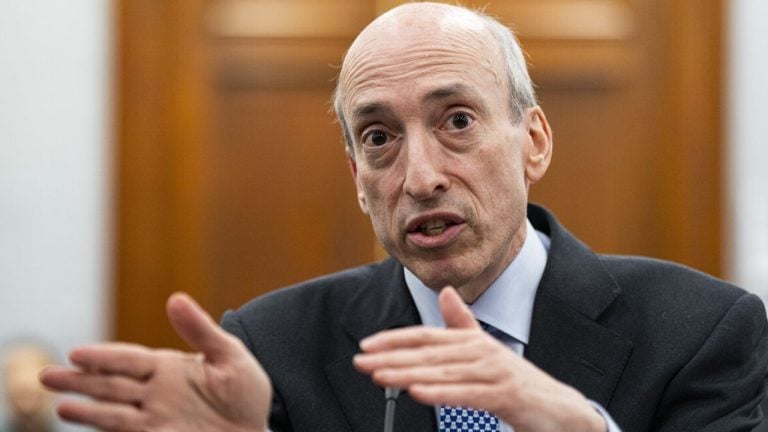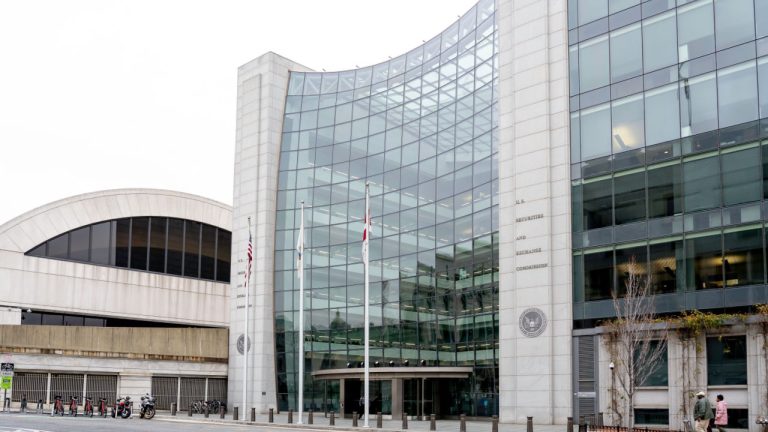
The court case between SEC and Ripple Labs has been ongoing for nearly two and a half years, but a summary judgment ruling could be made any day.
The ongoing case of the Securities and Exchange Commission v Ripple Labs could have a significant impact on the future of cryptocurrency regulations.
Ripple first popped up in 2012 with the promise of providing financial institutions and other entities with faster, more affordable clearance of cross-border fund transfers. To that end, Ripple created the XRP Ledger and a cryptocurrency called XRP (XRP) to function as its native coin and facilitate transactions.
On Dec. 22, 2020, the SEC sued Ripple, alleging that the firm selling XRP represented an unregistered securities offering.
Ripple co-founder and former CEO Chris Larsen and current CEO Brad Garlinghouse were also named in the SEC’s charges.
Most entities on the receiving end of SEC enforcement actions choose to settle. In this case, however, Ripple chose to fight the charges — at great expense — and take the matter to court.
Ripple argued that XRP does not satisfy the Howey test, which is used to determine whether an investment contract exists — and, therefore, whether a transaction is a security transaction. It also said that if XRP was, in fact, a security, the SEC had failed to give it fair notice under U.S. securities laws.
Enter the Hinman documents
The “Hinman documents” refer to a 2018 speech given by former SEC Director William Hinman and documents associated with writing it.
In the speech, Hinman said that Ether (ETH) should not be considered a security given its decentralized nature, stating:
“Putting aside the fundraising that accompanied the creation of Ether, based on my understanding of the present state of Ether, the Ethereum network and its decentralized structure, current offers and sales of Ether are not securities transactions.”
This was considered a landmark speech, as it signaled to the crypto industry that it could be possible for cryptocurrencies to transition from securities when they are first created to commodities once they are sufficiently decentralized.
This could have an impact on Ripple’s fair notice defense, which comes into play if Judge Analisa Torres finds that Ripple did indeed sell unregistered securities.
@attorneyjeremy1 is correct and this is why Ripple’s Fair Notice Defense should be viewed as an insurance policy. If the Judge finds Ripple violated Section 5 b/c these specific sales constituted investment contracts, Ripple argues the jury must decide if Ripple had fair notice.
— John E Deaton (@JohnEDeaton1) May 18, 2023
Ripple requested the documents in discovery, and the request was granted on Oct. 21, 2022. While the documents could be used as a part of Ripple’s defense, the SEC has attempted to keep them sealed on multiple occasions, arguing that they are irrelevant to the court’s summary judgment decision.
But on May 16, Judge Torres ruled that the Hinman documents are “judicial documents” subject to a strong presumption of public access and denied the SEC’s motion to seal.
Another win for transparency! Unredacted Hinman emails to be publicly available soon - stay tuned as the lawyers work through the mechanics to make that happen. https://t.co/o6puPypRHd https://t.co/qmaLVeQaP8
— Brad Garlinghouse (@bgarlinghouse) May 16, 2023
Notably, the court did not state whether the documents will be relied upon when it decides on the summary judgment motions of each party; but given the statements of those who have seen the documents, it appears likely they will negatively affect the public image of the SEC.
I’ve always felt good about our legal arguments, and I feel even better now.
— Stuart Alderoty (@s_alderoty) October 20, 2022
I always felt bad about the SEC’s tactics, and I feel even worse about them now.
Additionally, there are questions about whether Hinman had a conflict of interest when making the speech, as he worked at a law firm that is a member of an Ethereum advocacy organization before and after working for the SEC— and the documents may provide additional details around this.
Speaking during a Twitter Space shortly after the ruling, lawyer and CryptoLaw founder John Deaton predicted the documents will be:
“Disturbing, but not as shocking as maybe people think it’s going to be because there’s been, quite frankly, such a big buildup for it. [...] I believe when these emails come out, that the conflicts of interest will be even more highlighted.”
What does the latest ruling mean for the case?
While it’s still too early to tell what the ultimate outcome of the case will be, the court also denied certain motions to seal from Ripple, which included references linking Ripple’s revenues with XRP sales and the amount of compensation offered to trading platforms, among others.
In the Twitter Space, Deaton highlighted these sections as evidence likely to hurt Ripple’s chances of a complete victory, adding:
“I think the chances of Ripple getting a complete victory are much slimmer after reading this than I felt before. I still don’t think the SEC is getting a complete victory either.”
Deaton theorized that the courts could decide to fine Ripple for its early sales of XRP — relating to the initial coin offering and other transactions aimed at boosting the network — but that secondary sales of XRP and the coin itself are not securities.
If the above scenario happens AND the Judge agrees w/Ripple that the jury must then decide whether those early sales should be excused because Ripple lacked fair notice that XRP sales were effectively illegal (unregistered), it can only be described as a TOTAL VICTORY for Ripple.
— John E Deaton (@JohnEDeaton1) May 18, 2023
Deaton’s thoughts on the subject were given further credibility when former SEC securities lawyer Marc Fagel added his voice to the Twitter Space, saying that he generally agreed with everything that had been said but that the SEC’s suit was worded in a way that focused on the tokens issued by Ripple and not secondary market transactions.
Fagel added that he thought Torres “would be overstepping to make a ruling on secondary sales,” but he believed they were helpful in the SEC’s case, as they illustrate how a secondary market would not have been created without Ripple issuing securities while promoting the network.
...is good and bad news IMO. A complete Ripple win would have given J. Torres an out to NOT order production. Same goes for SEC. Doesn't automatically mean neither can win outright but, as I have predicted, still think these are both low probabilities. Could compel SEC to...2/3
— Fred Rispoli (@freddyriz) May 16, 2023
Could the case finally be reaching its conclusion?
In a May 17 Twitter thread, prominent pro-crypto lawyer Fred Rispoli suggested that the summary judgment ruling is already written and could be issued “any day now,” while also agreeing that a split decision was the most likely.
Deaton noted during the Twitter Space that he believes Judge Torres knows how she will rule but added that guessing how much is written “in its final form” would be pure speculation.
He also agreed that the decision could come down at any time, but he added that it could take another month or longer.
Magazine: NFT Creator: Top 10 crypto artist Trevor Jones on being rich, rekt and rich again










